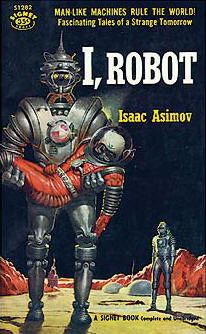Brand Gamblin's Blog, page 6
September 27, 2012
Iron Man and “Nothing Happens”
 I realized something today. I mean, a lot of this is going to sound obvious, but there’s something that’s been nagging at the back of my mind, and it finally crystalized into a real idea.
I realized something today. I mean, a lot of this is going to sound obvious, but there’s something that’s been nagging at the back of my mind, and it finally crystalized into a real idea.
Iron Man 2 wasn’t a great movie. It was good, I mean, okay anyway. But not great. And when I think about it, Iron Man 1 kinda sucked near the end.
So what did the first half of the first movie have that the rest of the series didn’t? The most obvious answer is the origin story, but I don’t think that’s it. We’ve all seen origin stories, and everybody knew he was going to turn into Iron Man anyway, so there wasn’t a whole lot of mystery there.
Come to think of it, there wasn’t a whole lot of plot. Don’t get me wrong, I know the plot was there, but just look at how it starts out. Weapons builder billionaire, and I don’t care what you think of the 1%, this guy was charming. He’s hit by mortar fire in the most realistic war footage I’ve seen since Black Hawk Down. Then it’s half an hour of him just… surviving.
He’s tied to a car battery. That’s not plot, but it’s interesting. He’s got an interpreter who is also a slave. Again, it doesn’t push the story forward, but it’s compelling. Bad guys are watching him all the time. Engrossing, but not plot. In fact, the only part that can be called plot is “he has to build a bomb or die”.
We all figure out pretty quickly that he’s building the first Iron Man suit, so it’s not too surprising there. But think about that. The engrossing parts had nothing to do with the plot. “Tell me about your family” Tony Stark says to his interpreter. We watch them build the suit, we see his plans taking shape. This isn’t about the suit, it’s about two guys working, hiding, plotting, and trying to stay alive.
Once Stark breaks out, the movie is still engrossing, because we watch his development into the Mark 1 and Mark 2. We see a scientist doing science-y things. Again, it’s not plot that’s interesting, it’s watching people living and striving to do something. It’s not about the goal, it’s about the journey.
So think about the rest of the movie. Obadiah Stain is such an obvious villain that he may as well have been accepting the award for “Most transparent bad guy since Time Bandits”. That he wants to steal the technology is a given. That he sells arms to our enemies is no surprise. There was one brief part that was kinda cool, where he rips Tony’s heart out, but that’s about it. Everything else is basic Hollywood plot. Bad guy is a traitor to good guy, good guy goes after bad guy, bad guy threatens love interest, bad guy gets big weapon, good guy is nearly pummeled, but comes back in a big (blah blah blah). The second movie was the same way. It even opens with “Bad guy has big weapon…” Very formulaic.
Okay, but if it’s formulaic, that’s because the formula works, right? I mean, that’s how it got to be a formula. The plot computer punched out when each point should happen, the writers massaged them together with as much continuity and one-liners as possible, and everybody was happy with their mass market appeal.
So why did I like the first part of the first movie so much better? I think it’s because of Nathan Lowell, Deborah Geary, and a little thing I like to call “Nothing happens.”
If you know those two names, you know that they are massively successful mid list authors who are famous for the criticism, “Nothing happens.” Sure, the hero is living in space, but he’s just living. He’s not… you know… doing anything. He’s taking tests, cleaning things, helping people do their maintenance work. You’ve got a coven of witches who have their own chat room, but they just sit around talking about guys and eating ice cream. How is that a cool story?
But this is the same undefinable thing that makes the first part of Iron Man so compelling. You hear this all the time from the big name writers, but it always sounds like sentimental bullshit – “It’s not about the plot, it’s about the characters.”
In Iron Man, you know he’s doing something, but that’s not why you’re watching him. You want to watch him because he’s just a good guy, and you want to hang with good guys. You want to see him succeed, not to save the world, but because it’s cool to succeed.
You want to watch that space janitor pass his tests, not because it means he’ll captain his own ship into dangers untold, but just because it’s cool to see your friends do well. You want to hear about what the coven of witches is doing, because some of them have personal issues, and you want to see your friends overcome those problems.
The key thing here is, it doesn’t matter how big or small the problem is. It doesn’t matter how immediate or far out the goal is. If you have a good character, readers will follow along, and beg for more, just to see them do well.
It’s the ultimate form of escapism. I want to watch a life that is so normal I can almost believe it, but is still succeeding and advancing. It’s a type of story that I want to write, and one that I hope I’ve written in my latest book.
I took a big chance on Invito Rex, because in this story, I’m letting the characters drive everything. I’m too steeped in action to have a story with no assassinations or explosions, chase scenes or bear polo. But at the same time, I’m giving the characters time to just be themselves, explain themselves, work out problems themselves. I’m getting dangerously close to “Nothing Happens” in some places.
Now that I think about it, I want to change that name. I don’t want to write a “Nothing Happens” book. I want to write a “Helping my friends” book.
Maybe that’s too touchy-feely. But then again, with all the murder and gunfire and superhero action in the other books, maybe it’s just touchy-feely enough.
September 24, 2012
Early Morning Asimov
 It started with the EP getting up early. For some unknown reason, she got up at 5AM, and was ready at 6. She got to school early, and was able to hold the door for everyone coming in. When she got home from school, she told me she wanted to go to school early every day.
It started with the EP getting up early. For some unknown reason, she got up at 5AM, and was ready at 6. She got to school early, and was able to hold the door for everyone coming in. When she got home from school, she told me she wanted to go to school early every day.
I mentioned to her that I used to go to school early every day, and that I used to sit in the library and read Asimov. She asked about Asimov, and I told her about the three laws. I asked her if she could think of any ways that the laws could be bent or broken to make robots go crazy.
That got us into talking about the mind-reading robot, and “Speedy” who ran circles around a crater, and the robot who worked his whole life to become human. We talked about Elijah Bailey and R. Daneel Olivaw, and a world with no sunshine. We talked about Susan Calvin and the robot that lost itself in an attempt to passively kill its creators.
I gave her “Robbie” to start out, and I promised her that, if she read all the short stories, I would let her read a very special book about a man who could predict the future using math.
She doesn’t believe me, but then, she seldon does.
Five steps to cleaning

Not the real EP, or the real clean room.
Recently, I stood outside the EP’s bedroom door, scanning it, sorting things in my mind. She sees me looking all over the room, and says, “What’s wrong?” I point out to her that the room is so messy, she literally can’t walk on the floor. She shrugs it off, “I just haven’t had a chance to clean in a while, and it’s soooooo messy, it’ll take all day.”
After breakfast and getting ready for school, she says, “I’m early, so can you unlock the computer and let me play Minecraft?”
I say, “Good news. Here’s your chance.”
“What?”
“I need you to do five things before you play on the computer.”
Her eyes narrow suspiciously, “That doesn’t sound too bad.”
“Number 1. Go make your bed. Just pull the sheets up to the top of the bed and put the cover on straight. Pretty simple, huh?”
She comes back a minute later, “How about now?”
“Number 2. I need you to pick up all the stuffed animals, and put them on the made bed. No big deal, just go through the room, and when you see a stuffed animal, throw it on the bed. Simple.”
She shrugs and does it. When she returns, I say, “Number 3. Now pick up all the clothes. Shouldn’t take long, it’s not a huge room. Just make a quick sweep through the room, and everywhere you see clothes, throw them in the hamper. And hey, you’re halfway there!”
It seems simple enough, so she does it and comes back, “What’s number four?”
“Books. Just pick them up off the ground, find a place in the bookshelf. They don’t have to be organized, just off the ground.”
A few minutes later, she says, “Okay, what else?”
I smile, “Number five. Get everything off the floor.”
“Everything?”
I point into the room at the remaining items, “Hey, look, there’s just five things. You can pick up five things, right?”
August 27, 2012
Circus game update
 I ran into my mathematician friend at work today. He’s the one that I told about my circular chess variant called “Circus”. Over the weekend, he and a friend built a board just for playing the game. They tried different tactics and strategies, and generally gave it it’s first ever true playtest. I only wish I could have been there to see it.
I ran into my mathematician friend at work today. He’s the one that I told about my circular chess variant called “Circus”. Over the weekend, he and a friend built a board just for playing the game. They tried different tactics and strategies, and generally gave it it’s first ever true playtest. I only wish I could have been there to see it.
I’m talking to people about building an actual board game and selling it, but it’s uphill work. Nobody wants to make a circular game board, and finding molded plastic pieces for a glove, a flame, a book, and a lance… well, it’s going to take some work.
Still, I’m hoping to have Circus available for playing in the game room at Balticon next year… right next to copies of Invito Rex. 
August 25, 2012
Personal Development RPG
 So let’s talk about personal development.
So let’s talk about personal development.
Every few months, I get this weird idea. It’s a kind of feeling of inadequacy that forces me to look around at the video games and twitter feeds and ask “What am I doing?”
Not in a derogatory manner, just in a general inventory-of-actions kind of way. Seriously. What am I doing today? What did I do yesterday? What am I planning for tomorrow?
Usually, that happens at a time when I’m doing almost nothing at all, which is why the feeling is generally seen as a bummer. I say, “I’m playing Diablo III for the third time through, and I guess I’ll do that again tomorrow, until I beat it again and start over.”
But this last time that the feeling hit, about a month ago, I started getting all analytical about it. I started thinking about those marketers who are “gamifying” everything. I like a good RPG as much as the next guy. So I decided to put RPG rules in with my personal development.
Here’s the sections that I think just about anyone can develop at just about any time:
* Intellectual
* Emotional
* Financial
* Physical
BTW, if you can think of any others (and I’m sure there are more) leave it in the comments and I’ll add it to the list.
So I figured I could give myself stats on each of those, and improve them (level up) based on XP. Here’s how that works.
* Intellectual – Every technical manual I complete or language I learn counts as a level. I break up technical manuals into chunks that are small enough to complete in a day, then count each of them as 1 XP. I also count writing (my fiction writing) as intellectual, because I sincerely believe that I get better at writing the more of it I do. I break that into 1 XP every 4 pages. Every 100 XP, you gain a level.
* Emotional – This one is more difficult, so I break it up into XP groups. Every thing that you do that is meant to improve joy or peace in the world counts as 1 XP (meditation, sitting and reading, playing games with the family, making a connection with a stranger, helping someone you don’t know. All of that- Ding!) Every 100 XP counts as a level (I may have to change the level ranges on the high end if I start volunteering at a soup kitchen or something).
* Financial – This one is easy. It’s like your Armor Class (I’m referring to the original D&D there, so if 3rd ed is different, my apologies. I haven’t played in years.) With Armor Class, every piece of armor you put on gives you more protection, but brings your AC score down. With Financial development, I started out with my total debt (credit card debt in the tens of thousands). From there, I measured my goal debt (zero), and divided the remainder by 100. So, if I’m 40k in debt, that means that every one XP is $400. So I recorded my debt at time zero, then for every $400 I remove from the debt, my XP goes up. I level up when I get to 100XP (note: I’ll also be debt free when I get to 100XP, so that’s a level worth winning). Once I go totally debt-free, then I’ll have to change the rules.
* Physical – This one is tricky, because there’s two sections to it for me. First, I want to lose weight. So, it’d be easy for me to just use my weight like Armor Class to show progress as a golf score. But at the same time, you can lose weight just by changing your diet. It doesn’t make you any stronger or more fit really. So I’m adding XP to that in the form of each physical exercise. I’m saying about 30 minutes of exercise = 1 XP. Weight then becomes a modifier based on distance from ideal weight. I’m still working on that one. May need to split them into two groups.
So there you go. I started out a Level 1 human, with a 1 in every stat except Financial. Now, how to turn this into more than a spreadsheet.
I wanted to start small, so I worked on just the Intellectual section (specifically, the book writing). This was in mid-July. Every day that I wrote 4 pages (around 1000 words), I gained one XP. Since then, I’ve written 40,000 words on my new book, meaning I’m up 40XP. Not a huge amount in the grand scheme of things, but it’s nearly half of the way to Level 2. That’s not nothing.
I also got a huge desk calendar and hung it on the wall. Every day that I wrote 1k of words, I crossed off that day. I’m trying to make the longest uninterrupted chain of days. My current record is 28. Note: I’m taking work and turning it into a game again.
Now that I’m getting used to it, accustomed to it, I decided to put on a new one. I’m studying to get my Java Certification, which means reading and comprehending a 900-page book, then being able to pass the test at the end. The book is easy reading, and I’ve split it up into 10-page chunks so that I can finish it in three months. I’m giving myself 1XP for every ten pages on that one.
I’m also working on Emotional in terms of reading and trying to take time with my family. I’m currently reading “A Hidden Witch”, “Zen and the Art of Motorcycle Maintenance”, and “Daemon”. Not all of them are reading about peace and joy, but it seems to me that having fun should count toward Emotional development. Let’s face it, without fun, this whole exercise is a grind. Also, we have at least two “family nights” a week, one where our friend Paulette Jaxton comes out to talk about writing, have dinner, and play board games with us. The other is the whole family gathering to watch a movie, play a game, or something.
But I noticed today that I’m still only working on Intellectual. Let’s face it, my current stats are:
Level 1 Human
1 – Intellectual – 42XP
2 – Emotional – 14XP
3 – Financial – 5XP
4 – Physical – 2XP
Clearly, I’m working on one system at the expense of others. But because I’m a gamer, I start thinking about how to rectify that. I mean, yes, I’m doing okay on Intellectual, and I don’t want to hurt that velocity, but by looking at my stats, I can see that I need to add 30 minutes of exercise each day, and to add in more financially light family time (board games, chess club at the library… Hell, just spending time at the library with the family). I can even combine them with things like taking the EP out to the pool (Physical + Emotional at the same time).
I know there are a lot of self-development systems out there, and I’ve tried a few of them, but I’ve stuck with this one for nearly a month, and I think the reason for it is that I see results. After all, I’ve written one-third of my next novel, I’ve dropped 2k from my financial debt, and I’m well on my way to having a certification that will help me in getting jobs and commanding a better salary.
Most important of all, the next time I get that, “What am I doing with my life?” I’ll actually have an answer.
If you like this system, or have one of your own you’d like to share, tell us about it in the comments.
August 18, 2012
Amazon and the Erroneous Ebook Excuse
I have to admit, I’m pretty steamed about this.
Just yesterday, I set up my newsletter (you can sign up for it in the sidebar), and I was proud to announce that there was a new version of The Hidden Institute available. I added the short story “The Kody’s Shame” to the book, thus answering two of the biggest complaints:
1) MOAR BEAR POLO and
2) it’s too short.
Except I didn’t. Oh, I wrote the new copy, formatted it, exported it, uploaded it to Amazon, previewed it, and waited for them to evaluate it.
Only later did it occur to me “Hundreds of people have already bought this book. How is Amazon going to update their e-books to show the new content? Do they have an automatic update? Is there a manual update you can use?”
Turns out, there’s nothing.
If you buy the e-book today, you will get all the best content, including the short story, and all the spelling errors fixed. If, however, you were one of the hundreds of people who bought it before? One of the early adopters who showed support before the reviews came in? You get nothing.
Seriously, the only way to get the new version is to delete your purchase (not the download on your Kindle, but the actual purchase on Amazon) and then to re-buy it, which is totally unacceptable.
So here’s what I’m going to do. If you send me proof that you ever bought the book (copy of the receipt with private info blacked out, picture of you holding a kindle with the book on it, picture of the paperback, whatever), I will give you the new version.
And not just the Kindle version of the new version. I’ll give you access to every possible version (that I could think of). EPUB, MOBI, PDF, RTF, HTML, TXT.
And what the hell, I’ll give you the first three chapters of the sequel (rough draft) if you want it.
This is by way of an apology from me for a gross oversight made by Amazon.
July 22, 2012
WIP from the Hidden Institute sequel
This week, I have written around 1200 words every day. This makes me far more happy than I would be with a single 7k day, because it means I’m getting back into the habit of writing.
To celebrate this good news, here’s a bit I wrote recently that turned out very nice. Hope you like it.
Chester Harrington woke that morning with a song in his heart, and nearly danced his way through the most important day of his life. He oversaw breakfast for his noble parents, helped prepare the bears, and coordinated with the other boys regarding their outfits and the revels to be prepared at halftime.
His was a smaller house of no great standing in the global community, which made this day all the more important. As subjects to Lord Wilde, it was the greatest honor that the Harrington family would host the Bear Polo game featuring his grace.
They were to play Oscar Oldham’s team, a second-rate team to be sure, and one easily beaten. But that was no call for slacking off. Every boy knew that there would be no excuse for treating this as though it were only a game. Thousands of people would be watching, their parents would be harshly judging every movement on the field. And on top of it all, they would be riding next to the King himself!
When he thought about it, Chester’s hands began to shake a bit. If the King saw him, perhaps recognized him for his riding skills, he might share a word with Chester. People might see them talking privately. A thing like that was like currency with his father and the other elder noblemen. And if the King should find him charming and witty, perhaps laugh at a joke or slap Chester on the back…
Chester shook his head and got back to it. The place was an anthill of activity, with breaking down the breakfast, preparing for the midday meal, setting up the awards ceremony (the King’s medal for victory had been ordered more than three weeks ago, and had only just been delivered the day before, causing a minor stir among the servants), everything had to run smoothly.
The day bounced frenetically from one small meeting to another as Chester checked up on safety harnesses for the mid-day show acrobats and color-coded saddles for the bears. It seemed almost no time at all before the game was on, and all the boys scrambled into their newly-tailored uniforms, and mounted their beasts.
They shuffled through the dark, crowded tunnel under the stadium, lining up based on their rank and performance that season. Chester was proud to be first in line, a right his father had fought and paid for. The line waited patiently for the announcement whistle. The bears shuffled back and forth, trying to break out of the line, unnerved by standing so long in the darkened tunnel.
From his place in line, Chester could hear the cheering of the throng through the heavy oaken door. He leaned forward a bit to listen closer, just as the doors sprung open with the hiss of a pneumatic press.
Chester blinked at the glare of the bright light that flooded the tunnel, it washed over them, pushing them back with it’s intensity. The roar of the crowd came with it, rushing past them and battering them with it’s intensity. For a moment, Chester just blinked and stared, agape. His eyes, ears, and mind all tried to adjust at the same time, as one of his friends slapped the back of his helmet, “Go on, dunderhead!”
Chester shook his head, then spurred his bear into motion. He held back, letting the bear amble carefully out, at the gait they were trained for.
One of the main reasons bears were chosen over horses was their flexibility in movement. Well, that and the rise in horseflesh consumption among the more poor of the commoners. Bears could run as fast as a horse in a sprint, they could stop much quicker, they could run sideways if needed, and they learned how to step much better.
Chester had spent weeks teaching his bear, “Bruv” to trot. It was a very awkward way of moving for a bear that looked a bit sissified to Chester, but the trainer said it was a noble and proud gait for a bear. His bear raised it’s head up high, and brought two paws up high every time it put the other two down. The reaction from the crowd was instant and overwhelmingly positive, and Chester grinned inside his helmet. Everyone loved the dancing bears.
As each of his players came out on the pitch, the announcer called out their names to another round of polite applause. Chester led the group in a short circle around the center point of their half of the field, then put them in a line facing the other side.
As soon as they were all in line, there was a sudden loud crack, and the <> took to the field. They were all wearing the sickly off-yellow and green that Oscar Oldham’s house was known for. They ran out onto the field quickly, as though they could frighten Wilde’s Warriors with their sprinting ability. The crowd was somewhat divided on their appearance, with some people booing them just for being the visiting team. The announcer called out their names as they took to the field then a hush fell over the crowd as the announcer said, “We will now raise a hand to our hearts and renew our vow. Please join our special guest, Myra Palmer, in her rendition of the vow.”
Everyone raised one hand to their heart, and looked up at the vidscreen which showed a tiny girl standing just offsides at the center line. Chester grinned to see the little moppet, barely able to stand alone without messing up her pretty new dress. She shifted from foot to foot as the camera zoomed in. Her words, though muttered and indistinct, were blasted over the entirety of the stadium.
“Um. I swear my undying… my under… votion to the King, and all he stands for.”
As the crowd parroted the young girl’s words, a new sight appeared on the field. From offsides, the King rode in on a mighty Kodiak.
He was brilliant and sparkling, a vision of royalty. His jersey and cloak were gold, and he wore no helmet, letting his own blonde hair blend with the bright, shimmering power of his outfit. The bear was massive and beautiful, with rippling muscles under it’s coat, and the clear focus of a well-trained beast.
“His grace protects us and leads us and holds back the night.”
The murmurs of surprise and amazement shifted through the crowd as the King continued to amble over to the child. Those who had only been mouthing the words of their vow now found themselves speaking loudly as she continued to lead them.
“May all the lords above grant me the grace and power to… fend hims and his works, and may I lay down my life in serf… service to his grace.”
The king’s bear reached the child, and she looked up to see him. That moment would be used in clips for years, as the beautiful little child gaped up at her sovereign in joy and amazement. He reached down and scooped the child up into his arms. The king placed her on the saddle in front of him and held her. He smiled and murmured, “Go on.”
She shouted out, “My love and my life for my king!” The king kissed her forehead.
The crowd went wild.
July 7, 2012
I need to play more in writing.
 So, I read a quote the other day that really struck me. The quote was, “If a man should write to entertain himself, he cannot fail but to entertain others.”
So, I read a quote the other day that really struck me. The quote was, “If a man should write to entertain himself, he cannot fail but to entertain others.”
Dunno who originally said it (if you know, tell me and I’ll attribute it), but I realized something fundamental about the way that I write.
I write in terms of a single, unified story. There is a hero, he walks a path, fights against iniquity, and wins. I make an outline wherein I list each of those goals, and all the sub-goals that exist on the path of getting him from point A to point B. Along the way, I have him talk with others, consider the bigger questions around what he’s doing, that sort of thing. Above all, though, I had every scene advance that one storyline toward the end goal.
In the end, I think that’s why my stories are so short. There is one story, and everything has to advance that story. Whenever people have told me the stories are too short, I ask, “But did you like the story?” Typically, they will shrug and say yes because they know that the story itself was good, even if it was direct.
I shouldn’t be doing that. I shouldn’t be letting a good story be a dodge for writing less than I could. People don’t read for plot, or else Twilight never would have happened (sorry, couldn’t resist). People want to feel like they are living in the world, and living is more than just walking through the goalposts of fate.
I think I need to play more. I think I need to have more sub-plots. I think I need to look at each scene and say, “That’s the direction that the story should go, but in this scene it would be a lot cooler if, say, the police break in and arrest everybody, or one of the characters snaps and starts firing at shadows”.
I think I need to spend more time thinking about how much cooler every individual scene could be, without worrying about mucking up the timeline.
June 17, 2012
A birthday mashup by John Mierau

Click here for more Mierau goodness
For my birthday this past year, author and podcaster John Mierau wrote a short piece for me, combining several of my stories. Check it out!
—
“Cliffy, please!”
“That was four lives ago, Dizzy!” he growled. His name was Clive now, the miner finished to himself, as the airlock lights cycled from red to yellow then green.
The hammering on the outside of the door was loud enough to hear when he removed the red, dust-pitted helmet.
“Fine, yes, alright, ‘Clive’. Now really, you simply must let me in!”
The inner airlock door hissed open. Clive Deloitte Hamilton III’s wife stepped in, arms crossed and scowl firmly in place.
“Dear God, no!” the woman sighed miserably.
Cyn was as beautiful now as she’d been a decade and a planet ago. Of course, she wasn’t Cynthia anymore either, but Catherine.
“Neither of us has to let you in Disraeli! What on Earth compelled you to seek us out here?”
A helmeted face pressed up against the small window in the outer airlock door. “Oh, you know… one gets bored without challenge.”
“I’d have thought there’d have been plenty of challenge avoiding the Assassin’s Guild!” Cyn-Catherine- muttered at the figure crowding their airlock door.
“No no, the King put that all to rest. Well actually, he put the Assassin’s Guild to rest. The entire planet is like a palace court now!”
Clive had no doubt that was true, what with the Crowns of Earth doming entire gutters and lifting them up and away, and then here.
He tried to keep the smile from his face, but could not. “And what’s life without a challenge?”
Dizzy nodded fervently, conking his helmet against the airlock in the process. “Yes! I knew you’d understand, my good chappy!”
Clive looked at his wife. “What say you, dear? There’s little chance of the constabulary looking for him here, what with the amnesty.”
‘Catherine’ scowled deeper. “It’s not what he’s done that I fear, it’s what he’ll do next!” But, with a sigh, she uncrossed her arms. “But if you can talk me into moving to Mars, I suppose you can have your friend sup with us too.”
Clive smiled at his beloved, and stepped through the airlock into the foyer of their rock mansion.
He bent to kiss her, and she reared back, waving her hand between their faces. “Not until you’ve bathed-and a real bath in water, mind you. Honestly Clive, you’re CEO of half the mines on this planet, and vice-regent besides! Why you have to masquerade as a miner too…”
He slapped the heavy airlock release, and the inner door sighed closed.
“Wipe your feet on the mat, Diz,” Clive called out on the live circuit.
“Oh, you are ever too kind, Cliff—-Clive! The saints of industry will sing your praises, and your people know nothing but peace-”
“Comms off!” Catherine said in a vexed tone, before reaching out and scruffing her husband’s already matted hair.
“This will be in the gossip columns come dawn, my beloved Vice-regent and CEO husband!” And she departed for her her changing rooms, to make herself presentable for company. Even such company as Clive’s dearest and oldest friend.
“Shall I set another plate, sir,” buzzed another voice from the stairs leading down from the airlock foyer to the mansion proper.
Clive’s ‘man’ turned the corner with barely a jitter. Perhaps the servicemen had finally gotten the nanolubricant formula right. The artificial manservant had been complaining about the fine Martian dust getting in his every cog and wheel.
“Yes, please, Lister,” Clive said, a grin taking residence beneath his thin, waxed moustache. “Oh, and inform the mine that neither the CEO nor my alter ego in the trenches will be reporting for duty, tomorrow.”
“Yes sir, and may I suggest sir, you also have a word with our guest about what neighborhoods to avoid? I do recall the… gentleman… tends to wander.”
Clive pulled his last leg free of the red-stained pressure suit. He slapped his hands across the front of his sweat-stained work gear, and a small puff of red dust made him cough. The suits were airtight–where did the dust always come from? he wondered.
“You won’t find a gear anywhere, sir,” Lister said, the artificial man seemingly reading his mind. “That’s free enough of dirt not to need a good greasing, now and then.”
The little construct backed up as Clive made his way down towards his suite of rooms and the shower. Somewhere down below Disraeli was instructing the kitchen staff on his dietary requirements.
“Yes, grit gets in everything, now doesn’t it.” He chuckled, as a scullery maid emitted a peel of laughter. “…but any world would be boring without a few surprises.”
Clive stepped into the marble-tiled dressing room and allowed Lister to help him strip down for the shower, the steam from which was already drifting from the next room.
“Still,” he said aloud again. “Better make a note to contact the Office of Security and make sure Dizzy’s name gets lost, before it’s found..”
“Yes sir,” Lister said. “Very good sir.”
June 13, 2012
Daisy’s story (from the Hidden Institute)

click here to see the book
Earlier today, I asked if anyone knew which of the characters in the Hidden Institute was originally born in the school. I’d left clues, but I was apparently too subtle, because no one guessed the answer. Rather than spelling out all the clues, I’ll tell you a bit of the backstory. If you’re still interested, you can go back and look up the clues in the book, once you know a bit about the characters.
A long time ago, easily fifty years in the future, there was a young woman named Daisy. Born to a powerful and noble house, she was hired as a scullery maid in service to the Queen. She showed incredible skill and attentiveness at her work, and rose quickly to cook’s helper, then waitstaff. The king himself remarked that he’d never seen such a young servant in the dining room, which sent the kitchen in a tizzy.
The cook barred her from the dining room, afraid that the King might be displeased by such inexperience. Daisy, however, slipped free of her duties before the evening meal, and appeared at the elbow of the Queen, helping her in defiance of the cook’s wishes.
The cook was outraged, and demanded of the butler that he back her in dismissing the upstart. The two of them approached the royal presence and were astonished to see that Daisy was continuing her service outside of the dining room.
When the servants protested and announced her dismissal, the Queen refused, deciding to keep the child as her lady’s maid.
The years rushed past for Daisy as she was raised to prominence over her peers. Though they sniped and bickered, the young woman would not listen to them. She instead turned her attention to the Queen, learning how the woman walked, how she spoke, and how she acted. Very often, Daisy would answer the Queen’s needs before her Grace had even recognized them.
One night, the Queen raised her up to nobility in her own right, announcing that the crown wished to recognize her efforts through gifts of land and title. Daisy attended the ball in a blur, laughing, dancing, and drinking toasts to her success. She danced with one boy in particular, a young nobleman of a lesser house who wished to insinuate his family in the royal attention. Daisy cared nothing for politics, and spent the evening basking in the attention and joy of the moment.
That evening, she inadvertently started a new life. Not for herself, but for the son she would treasure for the rest of her life.
The Queen wanted to be understanding. She wanted to stand by Daisy. But the King had no preference for Daisy, and had no interest in letting the young woman stain the reputation of his house. The King dismissed her, ensuring that she could never find a home in the nobility. However, the Queen left her the lands and money.
For the first time, Daisy was completely alone. The young father refused to acknowledge her or their actions, as she could no longer benefit his family.
Daisy had money enough to be comfortable, but had no skill at being a commoner. She had no business interests, and had no experience in being a landowner. In the end, she sold everything and ran from the world. It was while traveling through India, looking for a place to take root, that she met a young major.
Their meeting was not an accident. As the bullet train took them past scenes of devastation, starvation, and war, he sympathized with her plight. He told her that he knew what it was like to be removed from the royal presence. He mentioned the existence of a place where common folk, like themselves, could be taught to be noble.
It was a school of deceit, to be sure, but it was based on the noblest of goals. Helping people become the best they could be.
Daisy remembered those days as a child, working and listening and training herself to be the kind of noble lady that she saw every day. The major turned to her and said, “You have a remarkable insight into the nobility. You know them as you do your own family. If you should ever want to teach that, contact us.”
He pressed a card into her hand which read, “Major Pickering.”
Two weeks later, Daisy Simmons joined the Malcom Rutherford Holden School of Regentrification. She spent the rest of her life teaching commoners how to act like the people she had grown up with.
Her child was born in the Institute, and grew to manhood within those walls. He learned swordsmanship along with his letters. He practiced coloring and cooking. He trained in politics and profits. And his mother made sure that he was the most regal child the school had ever trained.
So when Wheylan Simmons left the school, he left as a Lord, more capable and believable than any graduate. His adopted father, Col. Pickering said that the boy was spotless, and would always stand as a beacon of sober fidelity and nobility, bringing honor to their ranks.



